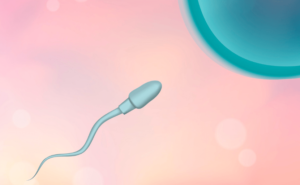Summary of this Article
During the early stages of pregnancy, many pregnant women experience symptoms of morning sickness. When feeling unwell due to morning sickness, attention may decrease, increasing the likelihood of falling or being involved in accidents while cycling. In the mid-pregnancy period, physical condition tends to stabilize, but as the belly grows larger, the overall balance of the body gradually changes. Therefore, attention to balance is necessary when riding a bicycle. In the late pregnancy period, the belly becomes even larger than in the mid-pregnancy period. It becomes significantly difficult to maintain balance on a bicycle, and the risk of falling increases significantly.
Introduction
It is generally said that riding a bicycle during pregnancy is not advisable, so many women tend to refrain from it during their first pregnancy. However, on the other hand, there are often situations where it is necessary, such as commuting or picking up and dropping off children at nursery schools or kindergartens during subsequent pregnancies. Some may find themselves in situations where they have no choice but to ride.
On this page, we will explain the risks associated with riding a bicycle during pregnancy and provide some points to consider when riding.
What Risks are Associated with Cycling During Pregnancy?
When riding a bicycle during pregnancy, what kind of risks might arise? Certainly, falling and hitting the stomach can be a major risk.
During pregnancy, the risk of falling while riding a bicycle increases for various reasons, so even those who are usually accustomed to riding need to be careful.
Let’s take a closer look at the risks by stage of pregnancy.

Early Pregnancy
The period up to 13 weeks and 6 days of pregnancy is referred to as early pregnancy.
Decreased attention due to morning sickness and cerebral anemia
Many pregnant women experience symptoms of morning sickness during early pregnancy. When feeling unwell due to morning sickness, attention span decreases, increasing the likelihood of falling off a bicycle or being involved in an accident.
Additionally, during early pregnancy, there are significant hormonal changes that can lead to instability in the autonomic nervous system. In such cases, inadequate control of blood pressure may occur, leading to insufficient blood reaching the brain, resulting in symptoms known as cerebral anemia. Since cerebral anemia can cause symptoms like dizziness when standing, experiencing this condition while cycling can be very dangerous.
While it’s not commonly believed that falling directly causes bleeding or miscarriage, significant impact could potentially affect the fetus.
Moreover, if surgery is necessary due to a major accident, it poses a significant burden on both the mother and the fetus.
NIPT (Non-Invasive Prenatal Testing) is available from early pregnancy onwards
During pregnancy, many people may wish to know more about their unborn baby or may feel anxious about their baby’s health. In such situations, there is prenatal testing available to examine chromosomal abnormalities in the fetus during pregnancy.
Prenatal testing can be broadly categorized into confirmatory tests and non-confirmatory tests.
Amniocentesis and chorionic villus sampling (CVS) are confirmatory tests, but they involve sampling amniotic fluid or placental tissue, which carries a risk of miscarriage or stillbirth.
Non-confirmatory tests include NIPT (Non-Invasive Prenatal Testing), combined screening tests, and maternal serum marker tests. At Hiro Clinic NIPT, it’s possible to examine the sensitivity and specificity of testing for chromosome 21 (Down syndrome) with a high accuracy of 99.9%.
Once pregnancy is confirmed through ultrasound, NIPT can be done immediately, and since it involves a blood sample from the mother, there’s no risk of miscarriage.
For those who want to learn more about their unborn baby or alleviate anxiety, considering prenatal testing might be worthwhile.
Mid-Pregnancy
The period from 14 weeks to 27 weeks of pregnancy is referred to as mid-pregnancy.
No room for complacency even in the stable period
By the time you enter the stable period, symptoms of morning sickness may subside, and many may experience improved health. However, the risk of cerebral anemia persists.
Additionally, during this time, the abdomen begins to enlarge. As the body’s overall center of gravity gradually changes, it’s important to pay attention to balance when riding a bicycle.
Moreover, the vibrations when riding a bicycle can stimulate the uterus, causing the abdomen to tighten. While such abdominal tightening may not immediately lead to threatened miscarriage or preterm labor, it’s still advisable to be cautious.
Even during the stable period known as mid-pregnancy, riding a bicycle requires utmost caution.
Late Pregnancy
The period from 28 weeks onwards is considered late pregnancy.
Increased risk of falling due to a large abdomen
In late pregnancy, the abdomen enlarges even more than in mid-pregnancy. It may become increasingly difficult to straddle a bicycle.
Due to the large and heavy abdomen, maintaining balance on a bicycle becomes extremely challenging, significantly increasing the risk of falling.
Furthermore, riding a bicycle may cause pelvic distortion, leading to an increased risk of breech presentation.
Term Pregnancy
Rupture of membranes or contractions
Term pregnancy is a period when labor or rupture of membranes could occur at any moment. It’s highly dangerous to experience contractions or rupture of membranes while riding a bicycle.
If contractions or rupture of membranes occur while cycling, the risk of falling increases, and delays in reaching the hospital are also possible.
Points to Note When Riding a Bicycle During Pregnancy
Avoid Riding in Bad Weather
During pregnancy, attention span tends to decrease due to symptoms like morning sickness. Also, the risk of dizziness increases due to conditions like cerebral anemia and the growing abdomen. In bad weather such as rain or snow, roads become more slippery than usual, so it’s best to refrain from riding a bicycle.
Keep Speed Moderate
Decreased attention during pregnancy leads to reduced reflexes. The risk of accidents or making mistakes increases compared to when not pregnant. Therefore, it’s important to ride at a moderate speed and be cautious.
Adjust Saddle Height
A high saddle height makes it difficult to stop and maintain balance when stopping. When riding a bicycle during pregnancy, adjust the saddle height so that your feet can touch the ground firmly from the heels to the toes.
Mind Your Clothing
During pregnancy, you may prefer loose-fitting clothes to avoid constriction around the abdomen. However, skirts or dresses can make cycling difficult. Opt for pants or other clothing that allows for easy movement when riding a bicycle.
Avoid Bumpy Roads and Roads with Steps
Bumpy roads or roads with steps transmit vibrations to the uterus more easily. Moreover, they can destabilize balance during cycling, increasing the risk of falls.
If you must ride a bicycle, try to avoid bumpy roads and roads with steps.
Avoid Roads with Heavy Traffic
Roads with heavy traffic pose a higher risk of collisions or falls. During pregnancy, it’s advisable to choose roads with minimal traffic whenever possible.

Choose a Bicycle that Doesn’t Strain Your Abdomen
When cycling, leaning forward puts pressure on the abdomen. Avoid bicycles that cause you to lean forward and instead opt for ones with higher handlebars that allow you to maintain a stretched posture.
Perform Bicycle Inspection and Maintenance
It’s important to avoid falling or getting into accidents while cycling during pregnancy. If you’ve been using your bicycle for a long time, the brakes may not work as well as they used to. If you plan to use a bicycle during pregnancy, make sure to have it inspected and maintained at a bicycle repair shop in advance.
Leave with Plenty of Time
When riding a bicycle during pregnancy, slow down and drive with extra caution. To avoid rushing and becoming distracted, make sure to leave with plenty of time.
Conclusion
We’ve discussed the precautions to take when riding a bicycle during pregnancy. While it’s ideal to avoid cycling during pregnancy if possible, there are often situations where it’s necessary. If you must ride, be aware of the risks associated with each stage of pregnancy and drive safely and attentively.
Article Editorial Supervisor

Dr Hiroshi Oka
NIPT specialist clinic, MD
Graduated from Keio University, School of Medicine
 中文
中文






















